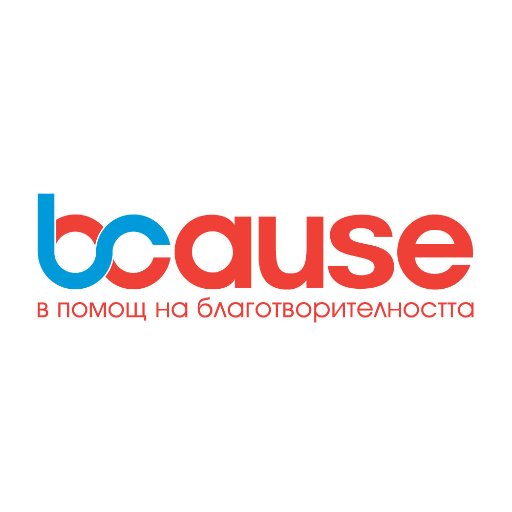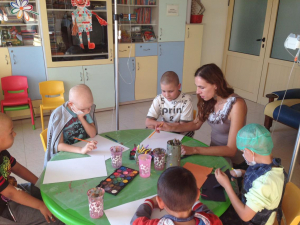
ARTON PROGRAM - The therapeutic power of the group
Creative projects involving group work - general musical performance or group painting, collage, sculpture - are useful in helping to explore and strengthen social...
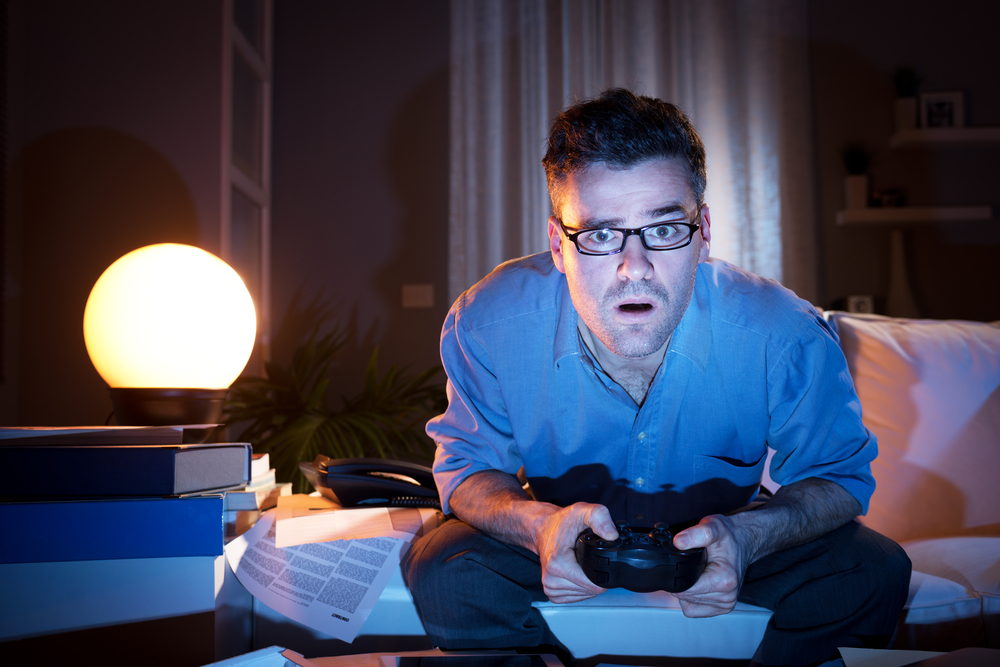
Although it is not yet recognized by the American Medical Association as a diagnosable disorder, video game addiction is a very real problem for many people. According to the University of New Mexico, recent studies suggest that 6 to 15 percent of all gamers exhibit signs that could be characterized as addiction. Though this disorder can have significant consequences to those suffering from it, its signs and symptoms can sometimes be very difficult to recognize.
There are two major types of video games and therefore two major types of video game addictions. Standard video games are generally designed to be played by a single player and involve a clear goal or mission, such as rescuing a princess. The addiction in these games is often related to completing that mission or beating a high score or preset standard.
The other type of video game addiction is associated with online multiplayer games. These games are played online with other people and are especially addictive because they generally have no ending. Gamers with this type of addiction enjoy creating and temporarily becoming an online character. They often build relationships with other online players as an escape from reality. For some, this community may be the place where they feel they’re the most accepted.
Many different causes factor into video game addiction. One of the main reasons that video games can become so addictive, however, is they are designed to be that way. Video game designers, like anyone else trying to make a profit, are always looking for ways to get more people playing their games. They accomplish this by making a game just challenging enough to keep you coming back for more but not so hard that the player eventually gives up. In other words, success for a gamer often feels just out of reach. In this respect, video game addiction is very similar to another more widely recognized disorder: gambling addiction.
As with any other addiction, video game addiction has warning signs. It is important to know how to recognize these signs if you or someone you care about is an avid gamer. According to the Illinois Institute for Addiction Recovery, these symptoms can be both emotional and physical.
Some of the emotional signs or symptoms of video game addiction include:
Some of the physical signs or symptoms of video game addiction include:
Like any other compulsive disorder, video game addiction can have severe negative consequences. Though most of the symptoms listed above have short-term effects, they can lead to more severe long-term repercussions if not addressed properly. For example, someone addicted to video games will often avoid sleeping or eating proper meals in order to continue gaming. While the short-term effects of this may include hunger and fatigue, it could eventually lead to a sleep disorder or diet-related health issues. Similarly, those who isolate themselves from others in order to play video games may miss out on family events, outings with friends, or other events in the short-term. If this continues to be a pattern for a long period of time, however, addicts might find themselves without any friends at all.
Other long-term effects of video game addiction to consider are the financial, academic and occupational consequences involved. Video games and video game equipment can be very expensive, especially when factoring in recurring costs such as the high-speed Internet connection required for online multiplayer games. These games can also be very time-consuming, leaving addicted gamers with less time to focus on their education or career.
The most effective self-assessment that can be done is to examine the above list of symptoms associated with video game addiction. If you find that you or someone you care about exhibits any of these warnings signs, it may be a good time to cut back on the amount of time spent gaming. If you are unsure whether these symptoms apply to you, we can help. Call our toll-free number at to discuss your possible symptoms or to learn about treatment options.
Treatment for video game addiction can come in many forms, including different types of therapy or 12-step programs. Certain medications may even be able to inhibit addictive behaviors.
According to addictionblog.org, bupropion is one medication that has been used recently to treat this type of disorder. The drug works in a way that changes the brain’s chemistry and helps to decrease cravings for video game play. Though it has proven to be fairly effective, this option may not be for everyone. Others may choose to medicate only when absolutely necessary, treating the symptoms as they occur. For example, a gamer suffering from migraines may take medication for headaches. Likewise, an addict suffering from sleeplessness may turn to sleeping pills.
When you take any form of medication, especially when self-medicating, it is very important to read all directions and follow dosage instructions carefully. Even over-the-counter medications can result in dependency and therefore should not be taken for long periods of time unless it is recommended by a medical professional.
Bupropion, though often helpful, is not for everyone. Some possible side effects include:
Due to the evident link between video game or Internet addiction and depression, it is not surprising that many addicted gamers take antidepressant medication to help with the symptoms. Though most healthcare professionals consider this type of medication to be safe and effective, it also comes with its own set of risks and side effects. One factor to consider before beginning antidepressant medication is that it may be difficult to stop taking it. It is common to experience withdrawal symptoms, including anxiety, irritability, nausea and dizziness. In more serious cases, it is possible to experience depression as a symptom of withdrawal from the medication. This depression can be even more severe than the original depression, leading the patient to believe that the illness has returned.
According to the National Safely Council, unintentional overdose is responsible for more deaths among Americans between the ages of 35 and 54 years old than motor vehicle crashes. When taking any medication for addiction or any other problem, it is important to take only the amount prescribed. If you suspect possible overdose, it is important to act quickly. Options for immediate response include dialing 911 or contacting the National Poison Control Center.
Two recent studies concerning the ties between video game addiction and depression showed an alarming correlation between the two. If you suffer from both conditions, it’s important to seek help at a treatment facility that can address both issues. If you attempt to treat the video game addiction without treating the underlying depression, the addiction is more likely to recur.
Because video game addiction has been linked to depression, sleeplessness and an overall lack of concern for one’s own health, it is not surprising that substance abuse is also a problem for many gamers suffering from this compulsive disorder. For those suffering from video game addiction as well as substance abuse, proper treatment is imperative to recovery. If you or someone you know is currently suffering from one or both of these disorders, seek professional guidance immediately by calling us at .
Recovery is not always easy, but it is achievable. Video game addiction can be just as dangerous as any other addiction and should be treated as such. The first step in overcoming dependency is being able to recognize that it exists. If you or someone you know exhibits any of the signs or symptoms described above, please don’t hesitate to find help treating a video gaming addiction. Call our hotline today at to begin the road to recovery.

Creative projects involving group work - general musical performance or group painting, collage, sculpture - are useful in helping to explore and strengthen social...
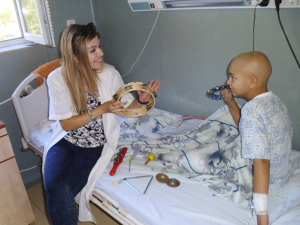
In the ARTON Program our team of oncopsychologists, art therapists and music therapists develops the process of children's creativity as a process of...
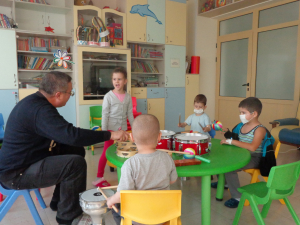
In ARTON sessions, creating a piece of music or a song is an emotional experience of coping and satisfaction for the participating children. They make friends with...
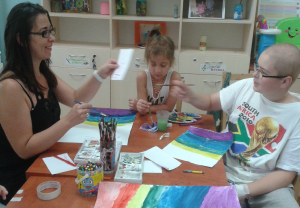
Painting provides patients with a spontaneous, plastic method of depicting thoughts and experiences. Painting with paints is not as structured as with pencil or...
